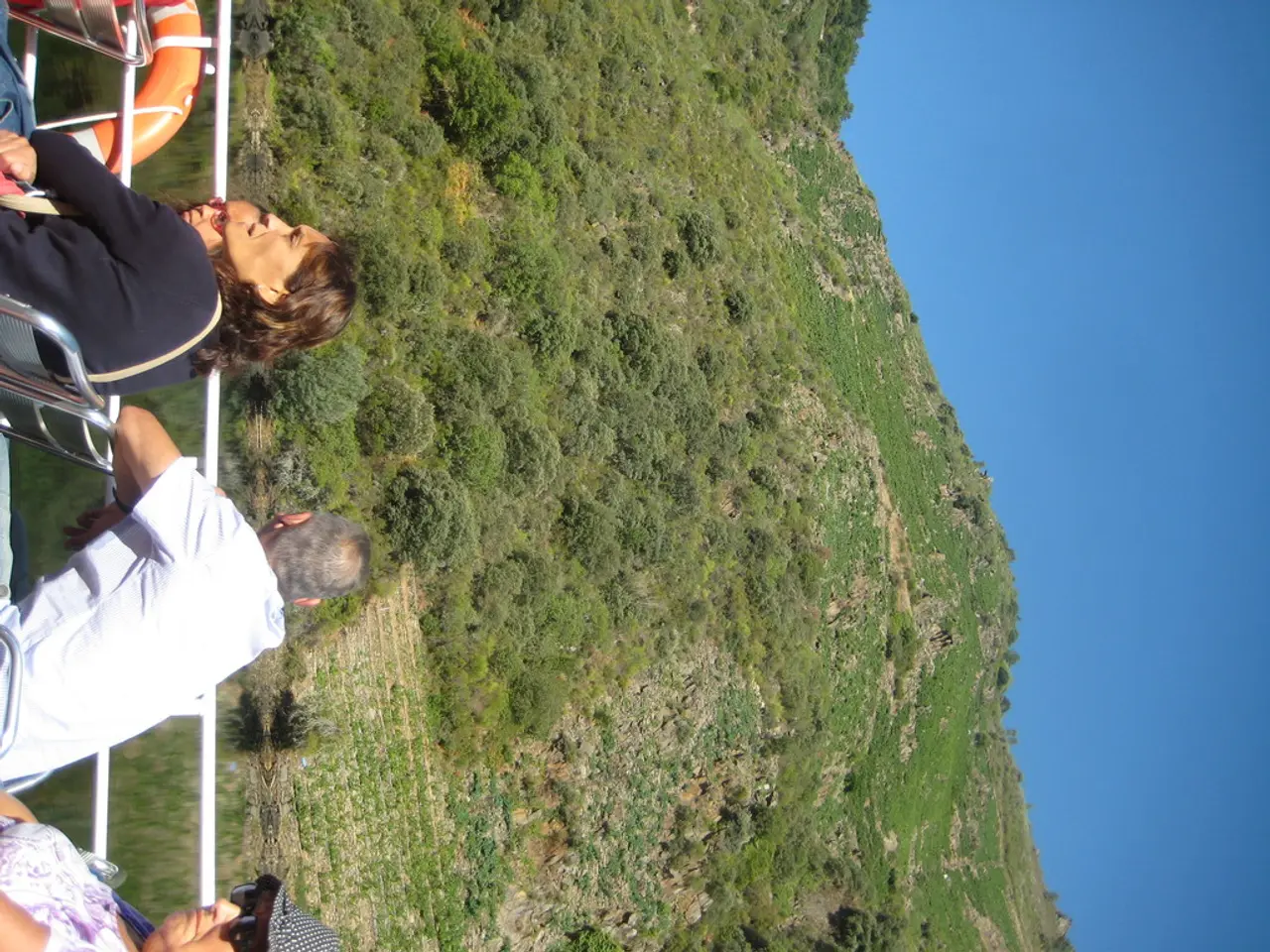Encourages eco-friendly water-based tourist experiences in MV - Emphasizes eco-friendly water-based tourism in MV
Mecklenburg-Vorpommern, a scenic region in Northeast Germany, is offering a wide variety of water activities to attract nature-loving tourists. From passenger shipping and boat and canoe tours to surfing and fishing, there's something for everyone [1].
The state's tourism board is working closely with the National Natural Landscapes to captivate water sports enthusiasts with the region's natural beauty. The collaboration, named "#naturallyWithResponsibility", aims to offer friendly reminders for respectful interaction with nature [1].
Mecklenburg-Vorpommern boasts approximately 1,200 water tourism businesses, providing a robust infrastructure for canoeing, particularly along the Peene, the Warnow, and the Lake District [1]. These popular canoeing destinations offer breathtaking landscapes and diverse wildlife, making for an unforgettable experience [2].
The most popular reason for visiting Mecklenburg-Vorpommern remains a beach holiday at the Baltic Sea. However, the state is making strides to promote its water sports offerings, recognising significant untapped potential [1].
Cross-state cooperation is a key part of Mecklenburg-Vorpommern's strategy. The state collaborates with Berlin and Brandenburg under the "Germany's Lake District" brand, covering over 5,000 lakes and 60,000 kilometers of waterways. This alliance aims to simplify planning for water sports enthusiasts, ensure compliance with rules, and promote sustainable enjoyment of the region’s water resources [1].
Economically, water tourism in Mecklenburg-Vorpommern generates around one billion euros in annual turnover, signifying its vital role in the region's economy [1]. The cooperation improves regional infrastructure, hospitality, and leisure services, benefiting both locals and tourists [1].
In addition, the toMOORow initiative is restoring wet meadows in the Sernitz Mire by filling drainage ditches and building sills to retain water. This project reduces greenhouse gas emissions by up to 1,200 tons of CO₂ annually, supporting sustainable land use alongside water conservation and biodiversity protection [2].
The region’s waterways flow through UNESCO biosphere reserves such as Schaalsee and Flusslandschaft Elbe, where diverse flora and fauna like beavers, otters, and eagles thrive. Activities like canoeing, hiking, and sailing are promoted in harmony with these protected areas, combining tourism with environmental stewardship [3].
Together, these sustainable water tourism initiatives foster a balanced relationship between ecological preservation and economic benefit, making Mecklenburg-Vorpommern a leading example of responsible water-based tourism in Germany. With approximately 19,000 people employed in the water sports industry, the state is not just attracting tourists but also providing sustainable employment opportunities [1].
[1] Source: Mecklenburg-Vorpommern Tourism Board [2] Source: toMOORow Initiative [3] Source: UNESCO Biosphere Reserves in Mecklenburg-Vorpommern
- The tourism board in Mecklenburg-Vorpommern, working with the National Natural Landscapes, is implementing a community policy called "#naturallyWithResponsibility" to encourage environmental-science and reduce the impact of climate-change in the region while promoting outdoor-living, lifestyle, travel, and adventure-travel.
- Vocational training programs in vocational training, vocational training, and more vocational training are being provided for people in the water sports industry, supporting sustainable employment opportunities and contributing to the regional economy.
- As part of the toMOORow initiative, wet meadows in the Sernitz Mire are being restored to reduce greenhouse gas emissions, promote sustainable land use, and protect biodiversity – further demonstrating Mecklenburg-Vorpommern's commitment to environmental stewardship.
- The region's waterways flow through UNESCO biosphere reserves, where visitors can enjoy activities like canoeing, hiking, and sailing that emphasize harmony between tourism and nature conservation while showcasing Mecklenburg-Vorpommern as a leading example of responsible water-based tourism in home-and-garden and lifestyle contexts.




